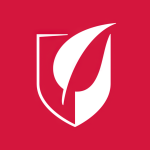Welcome to our dedicated page for Gilead Sciences news (Ticker: GILD), a resource for investors and traders seeking the latest updates and insights on Gilead Sciences stock.
Gilead Sciences, Inc. (GILD) is a leading biopharmaceutical company focused on developing innovative therapies for life-threatening diseases. This page provides investors and healthcare professionals with timely updates on the company's latest developments, regulatory milestones, and strategic initiatives.
Access comprehensive coverage of Gilead's press releases and news, including updates on antiviral therapies, oncology research, and clinical trial results. Our curated collection features earnings announcements, partnership details, and progress reports on treatments for HIV, hepatitis, and emerging cancer therapies.
Stay informed about critical developments through verified updates on FDA approvals, research collaborations, and therapeutic advancements. All content is organized chronologically for quick reference, with clear sourcing to ensure transparency.
Bookmark this page for streamlined access to Gilead Sciences' official communications and third-party analysis. Regularly updated to reflect the company's evolving pipeline and market position, this resource supports informed decision-making for stakeholders at all levels.
Gilead Sciences, Inc. (NASDAQ: GILD) has declared a 2.7% increase in its quarterly cash dividend, now set at
Gilead Sciences (Nasdaq: GILD) reported its fourth quarter and full year 2022 financial results, highlighting an overall revenue increase of 2% to $7.4 billion in Q4. Notable year-over-year sales growth included Oncology sales up 71%, and Biktarvy sales rising 20% to $10.4 billion for the year. However, Veklury sales fell 26% in Q4 and decreased 30% for the year, reflecting reduced COVID-19 hospitalizations. Diluted EPS for Q4 was $1.30, a significant increase from $0.30 in 2021. For 2023, Gilead anticipates total product sales between $26.0 billion and $26.5 billion, with a focus on continued growth in HIV and oncology products.
Gilead Sciences has awarded $5.7 million in grants to 21 U.S. organizations to support efforts aimed at advancing health equity for Black individuals affected by triple-negative breast cancer (TNBC). Recognizing the impact of racism and social determinants of health, these grants focus on enhancing organizational capacity, promoting racial equity, improving communication in care, and providing educational resources for communities. The company's efforts highlight its commitment to addressing disparities in cancer care and fostering equitable health outcomes.
Gilead Sciences (GILD) announced a $7.6 million grant funding initiative under the Toward Health Equity Oncology Grant™ to 24 U.S.-based organizations. This program focuses on addressing health inequity in breast cancer care through evidence-based interventions like patient navigator and cultural competency training. With breast cancer affecting more women in the U.S. than any other cancer (excluding skin cancer), this initiative aims to combat disparities, particularly among people of color. The funding builds on a prior $5.7 million support provided to 21 organizations in 2022, expanding efforts to close gaps in care for historically neglected communities.
On January 29, 2023, Kite, a Gilead company (NASDAQ: GILD), and Arcellx (NASDAQ: ACLX) announced the completion of a global strategic collaboration to co-develop and co-commercialize CART-ddBCMA, a late-stage product candidate for treating relapsed or refractory multiple myeloma. Currently in a Phase 2 pivotal trial, CART-ddBCMA leverages a novel synthetic binder technology. The collaboration will allow Kite to commercialize the therapy outside the U.S., while both companies will advance the asset in the U.S. This partnership aims to address the urgent need for effective therapies in treating multiple myeloma, an incurable cancer for most patients.
Gilead Sciences (NASDAQ: GILD) announced its participation in three upcoming investor conferences. The SVB Securities Global Biopharma Conference will take place on February 14 at 11:20 AM ET. Following this, Gilead will be present at the Cowen Annual Health Care Conference on March 7 at 11:10 AM ET, and the Barclays Global Healthcare Conference on March 15 at 10:15 AM ET. Live webcasts and 30-day replays will be available on the company’s investor page.
Gilead, headquartered in Foster City, California, has been a leader in developing innovative medicines for over three decades.
Gilead Sciences, Inc. (NASDAQ: GILD) is set to release its fourth quarter and full year 2022 financial results along with the full year 2023 financial guidance on February 2 after market close. A management webcast will follow at 4:30 p.m. Eastern Time to discuss these results and provide a business update. Gilead, a biopharmaceutical company headquartered in Foster City, California, has been dedicated to creating innovative medicines for over 30 years, focusing on life-threatening diseases such as HIV, viral hepatitis, and cancer. The live webcast will be accessible on Gilead's Investor Relations website.
Gilead Sciences celebrates the Israeli Ministry of Health's new universal HIV screening policy for pregnant women, announced in September 2022. This policy makes HIV testing a routine procedure for all pregnant women, a significant shift from previous guidelines that only tested high-risk groups. The change aims to prevent mother-to-child transmission of HIV, with early treatment reducing transmission risk to as low as 0.3%. Gilead's partnership with the Israel AIDS Task Force and other organizations has been pivotal in advocating for this long-awaited policy. The coalition expects this policy will lower the incidence of children born with HIV in Israel.
Gilead Sciences continues its efforts against COVID-19 by mobilizing teams of virologists as 'variant hunters' to monitor new strains. Gilead has tested over 15 variants of SARS-CoV-2 since the pandemic began. Upon identifying a 'variant of concern,' the company coordinates with the CDC and global collaborators to collect samples and assess the effectiveness of existing therapeutics. Recent developments include utilizing engineered variants, or 'replicons,' to accelerate testing processes as new variants emerge. This proactive approach aims to ensure that COVID-19 treatments remain effective.
Gilead Sciences supports community outreach efforts by Equal Hope, focusing on breast cancer education for underserved women in Chicago. Founded to address disparities in cancer mortality rates, particularly for Black women, Equal Hope mobilizes health workers in local spaces to engage with the community. The COVID-19 pandemic disrupted timely screenings, increasing the risk of late-stage cancer detection. With Gilead's assistance, Equal Hope aims to enhance outreach and ensure that preventative breast health screenings remain a priority.


